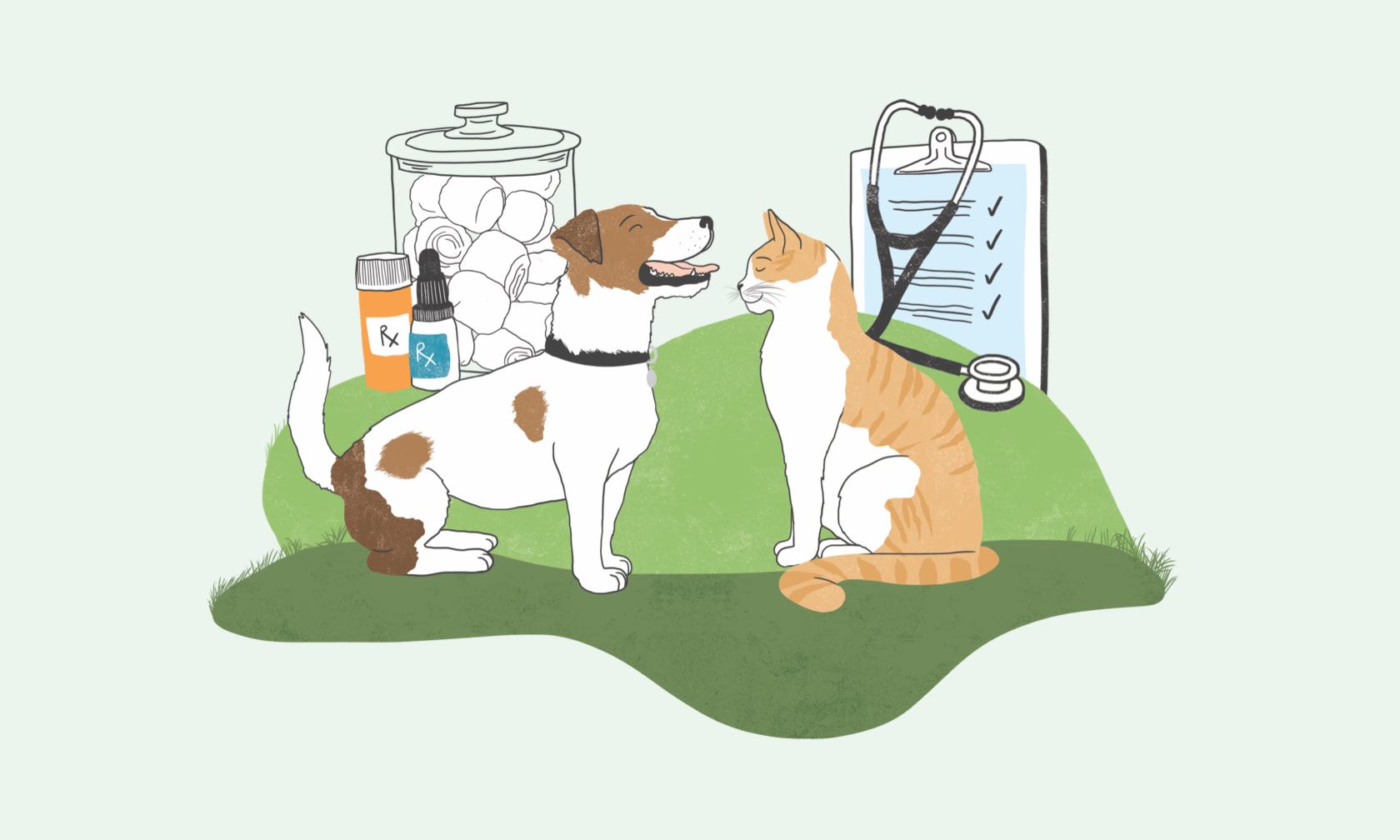Have you ever tried to read an instruction manual and thought, “I can’t make sense of this — is it upside down or in another language?” You’re not alone! Everything seems to have a manual that’s difficult to understand, and our pets are no exception. In this case, their “manuals” are their medical records. These documents provide you and your veterinarian with a lot of essential information to help your pet live their best life.

What’s in Your Pet’s Medical Records?
Your pet’s medical record is a confidential and legal record that systematically details their entire health history, just like your personal medical record. It’s used to provide information, including the assessment, diagnosis, and treatment resulting from all of your pet’s veterinary visits. It can be helpful for you, current and future veterinary team members, and others.
Client’s Contact Information
This includes your name, address, phone number(s), and e-mail address. It’s critical to keep this information current.
Pet’s Signalment
This is a description of your dog or cat, including species, breed, coat color, distinguishing markings, age, date of birth, and reproductive status (spayed/neutered or intact). It may also include microchip information. When your pet is in a clinic full of other cats and dogs, it’s good to have a clear physical description in their records. Some practices also include a photograph of your pet for identification purposes. If your pet is ever lost or stolen, this can also come in handy.
Pet’s Medical History
These records ensure that all the medical professionals working with your dog or cat have the same detailed information on their assessments, vaccination history, past and current treatment plans, past and current medications, test results, weight history, and more. Some of it may be a bit too technical for the layperson, but your veterinarian can answer any questions you have. A key part of the records and a reason to have a copy is the vaccine history. This can be added as a separate line item or added under medical information.
Surgical History
This section is particularly important if you’re working with your veterinarian and an outside medical professional (such as a specialist veterinary surgeon or physical therapist) for a procedure. It ensures everyone caring for your pet is on the same page with things like the initial diagnosis, surgical recommendations, relevant test results, discharge instructions, and recovery plans. If, for example, your dog or cat is referred to a specialist for post-op physical therapy, they’ll refer to this section to best plan your pet’s care. Also, if your pet ever has an issue later in life related to a past surgery, their current veterinarian will benefit greatly from reviewing the specifics of that surgery from years earlier.
All pet medical records are the property of the veterinary hospital. The general law for most states is that records must be kept for 3 to 5 years after the patient’s last exam or treatment. This is why, as we’ll discuss later, you should have your own copy that spans your pet’s entire life.
The veterinary hospital may assess a reasonable charge for the search, retrieval, duplication, and mailing of the records — another reason having your own copy is helpful. These records can only be released with your consent or court order because they are confidential and privileged.
Why You Should Have a Copy of Your Pet’s Medical Records
It’s easy to see how medical records help your pet’s medical team care for them, starting at puppyhood or kittenhood, and throughout their entire lives. There are also several ways your pet’s medical records can help you.
Having a complete copy in a secure location guarantees you can always access them when needed. Be sure to collect the records from all veterinary clinics your pet visited in the past and request a copy of the records after each new visit so you have everything in one place. Consider keeping a copy in a fireproof safe with other important documents.
Welcome to the Family
Whether you’re adopting a puppy from a breeder, rescuing a senior cat from a shelter, or otherwise adding a furry family member, having a copy of their medical history before they came to you is invaluable.
Keeping the Facts Straight
Keeping a paper copy allows you to make your own notes and recall timelines for visits and care, which can be helpful if you’re managing ongoing or complicated health issues — but, to avoid confusion, do not alter the medical record copy you provide to your pet’s veterinary care team.
New Veterinarian
Anytime you transfer care to a new veterinary clinic, you should provide them with a copy of your pet’s complete medical records up to that date.
Medical Emergencies
Unfortunately, emergencies happen, and they often occur when your regular veterinarian isn’t open. By having your pet’s medical records at home, especially for chronic medical conditions, you can help the emergency facility treat your pet more efficiently.
Travel
If you travel with your pet, it is essential to have a copy of their records accessible, including a copy of their rabies certificate. Some hotels require proof of vaccines. Additionally, certain medical information may be required if you have to board your pet unexpectedly while traveling. You may also have to make an unplanned veterinary visit on your travels. Having these records can save time and money.
Pet Insurance
If you’re shopping around for pet insurance, they’ll need a look at those records to establish any pre-existing conditions your dog or cat may have.
ZPC-01693R2



